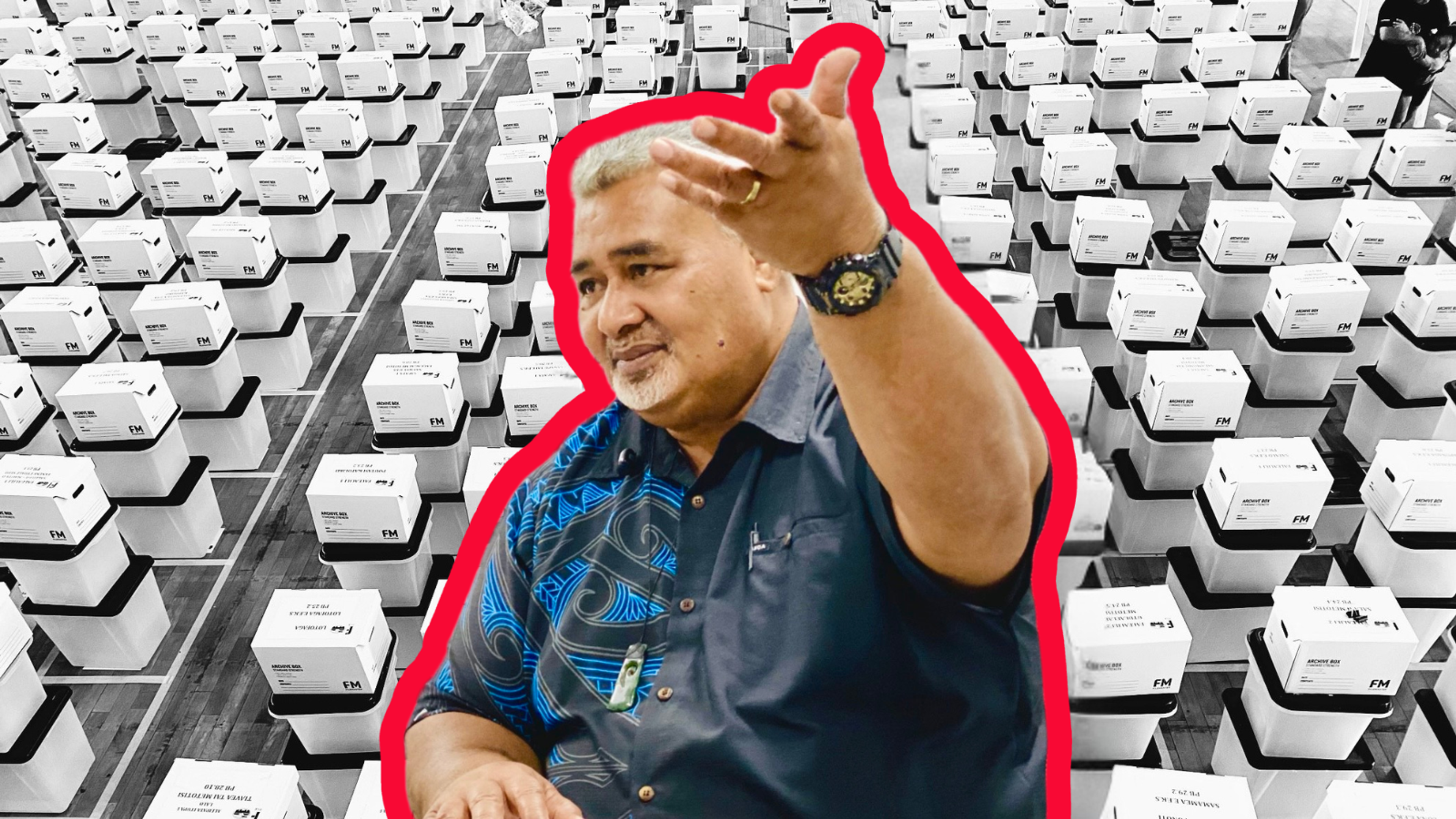

Some WINZ appointments could soon be held over the phone, instead of in-person.
File/Unsplash
Concerns missed phone calls could lead to benefit cuts for job seekers
The government is introducing phone appointments to help improve efficiency and reduce unemployment, but critics worry what might happen if vulnerable youth don’t pick up the phone.



The Gentle Boys bring Pacific comedy to Circa Theatre’s 50th Jubilee

Local group protests to protect Auckland's rockpools from visitors

Questions raised as Safata I by-election postponed in Sāmoa with no new date


Beyond the checkbox: Researcher champions Māori and Pacific data collection sovereignty

The Gentle Boys bring Pacific comedy to Circa Theatre’s 50th Jubilee

Local group protests to protect Auckland's rockpools from visitors

Questions raised as Safata I by-election postponed in Sāmoa with no new date
Appointments for some people on the jobseeker benefit will soon be held over the phone, but there are concerns this could increase disengagement from services, along with consequences if calls are missed.
The Ministry of Social Development has set up a new phone-based management system aimed at getting job seekers aged 18-24 “work ready and into work”.
Social Development Minister Louise Upston says adding case management by phone will be more efficient for case workers and the people they are working with.
“We want to make sure they get the support they need and are connected to work more quickly because otherwise, we know the figures tell us that a young person going on to the JobSeeker benefit under the age of 25 could spend over 20 years on welfare, so we've got to work differently and help them connect to work.”
Speaking to William Terite on Pacific Mornings, Upston said this should be more convenient than having to come into a Work and Income New Zealand (WINZ) office, but added there would be consequences for non-compliance.
“They'll have a time and an appointment in which that phone call will take place, and if they don't pick up the phone, if they're not there for their appointment at their allotted time, then there are sanctions.
“It might mean that their benefit is reduced or suspended, or in the worst case scenario, cancelled.”
Youth worker and Kick Back founder Aaron Hendry said this change could increase the risk of disengagement and homelessness for those who were most vulnerable.
“Not all of our young people have a reliable phone, while many struggle to engage with WINZ.”
There is also concern on the return of sanctions for non-compliance, which have already been applied to some of the youth Henry works with.
“With sanctions being utilised more regularly, we risk pushing young people into greater harm, rather than providing the support they need to address what is going on.”
This comes as sanctions have increased by more than half since this time last year, with 6069 sanctions for missed appointments.
Quicker support
The number of people on the jobseeker benefit has increased by 4500 since May, with figures estimated to peak in January.
Upston said this was due to the economic challenges inherited from the last government, but now focussed on momentum for those looking for work.
“If someone goes on to a jobseeker benefit within the first two weeks, they'll need to go into MSD, sit down with a staff member and talk about the practical steps that will help them get a job.
“If their CV's not up to scratch, they'll get help doing that. If not having a driver's licence is a barrier, they can be connected to a programme to support them getting a driver's licence. If they need to do some training or upskilling, they can be connected with programmes that are funded to help them do that.
“We're not going to sit and wait for 12 months, we're going to get into action within the first couple of weeks.”
The government hopes to reduce the overall number of people on the jobseeker benefit by 50,000 in six years.
But Green party social development spokesperson Ricardo Menéndez March said a drop in numbers did not equate to progress.
“The Government cannot be serious about supporting people into work when their target of getting 50,000 off a benefit includes people leaving because they died or entered a relationship, as opposed to only measuring work exits.
“This ‘new’ idea about check-ins with MSD for beneficiaries sees the Coalition doubling down on policies that don’t work: people on benefits routinely hauled over the coals to meet with advisers to be grilled on their suitability to employment, or risk having their benefits cut.
“We’ve seen in previous decades how check-ins contributed more to the negative stigma of being unemployed, and there’s no evidence that they help people into meaningful employment.”
Watch the full interview with Louise Upston on Pacific Mornings: